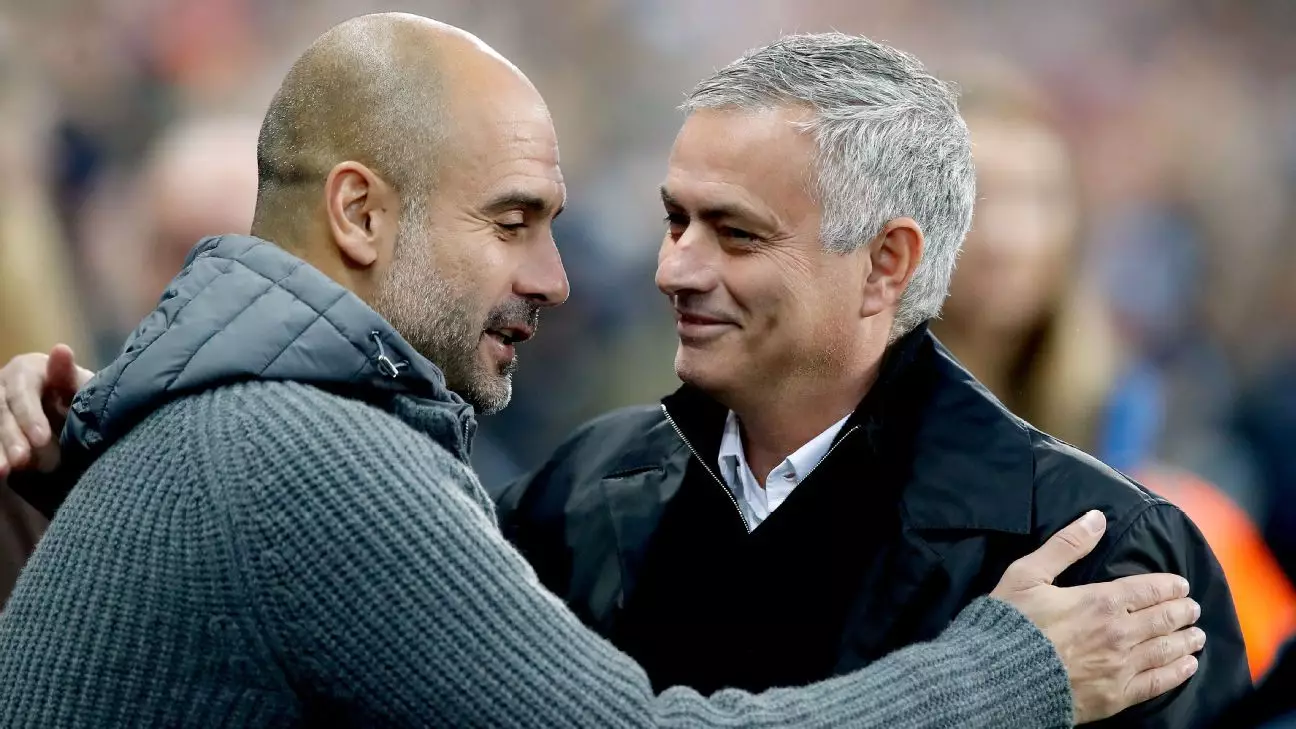In the world of football, particularly in the Premier League, the rivalry among managers often extends beyond the pitch, becoming a key aspect of the drama that defines the sport. Recent comments made by Manchester City’s Pep Guardiola and the response from José Mourinho regarding their respective trophy cabinets have ignited yet another chapter in their ongoing feud. This debate is not merely about the number of titles won but rather the manner in which these accolades were obtained, a subject that delves into deeper themes of integrity, sportsmanship, and legacy within the game.
After Manchester City’s disappointing 2-0 defeat to Liverpool, Guardiola, seemingly in a moment of both bravado and defense, showcased his number of league titles by holding up six fingers to the crowd, a direct comparison to Mourinho’s three. His comments played into the narrative of historical success versus current struggles, wherein he reflected on his achievements while casting doubt on Mourinho’s credentials. Mourinho’s response, quoting the Turkish outlet Hurriyet, highlighted the controversy surrounding City, particularly the ongoing allegations of financial misconduct that have clouded their successes. He asserted that his three Premier League trophies were earned “fairly” and “cleanly,” pivoting the discussion from mere statistics of success to the ethics underpinning those achievements.
Mourinho’s remark about the integrity of his wins compared to Guardiola’s raises fundamental questions about the moral implications of football management and the responsibilities that come with it. It is a sentiment echoed by fans and pundits alike who argue that the perception of fairness can be as crucial as the titles themselves. The Portuguese manager’s insistence that he would rather congratulate a superior opponent than claim dubious victories only enhances his narrative as a purist in a tarnished landscape. It compels one to consider whether influence, money, and alleged rule-bending can overshadow genuine achievement—a notion that Mourinho effectively leveraged throughout his career.
Legacy and Historical Impact
Furthermore, Mourinho’s speculation regarding the fate of previous titles held by City introduces an intriguing dimension to the rivalry. The idea that his status could rise at the expense of another’s fall formulates a unique juxtaposition—the notion of a manager seeking redemption not through victories on the pitch, but by the possible retraction of others’ accolades. Such a perspective brings the discussion full circle into the realm of legacy: How future generations will perceive these accomplishments, and whether the authenticity behind them will outweigh the glitter of trophies. Not merely confined to their current performances or trophy counts, Mourinho and Guardiola each carry narratives that will echo throughout football history.
Through this lens, the clash between Mourinho and Guardiola transcends the surface level of championships, delving into the profound implications of how those titles are earned, the ethical considerations involved, and the legacies managers build throughout their careers. In a world where the lines between right and wrong can often blur, it is vital to recognize that the true spirit of competition lies not in mere trophies, but in the integrity with which they are pursued.

